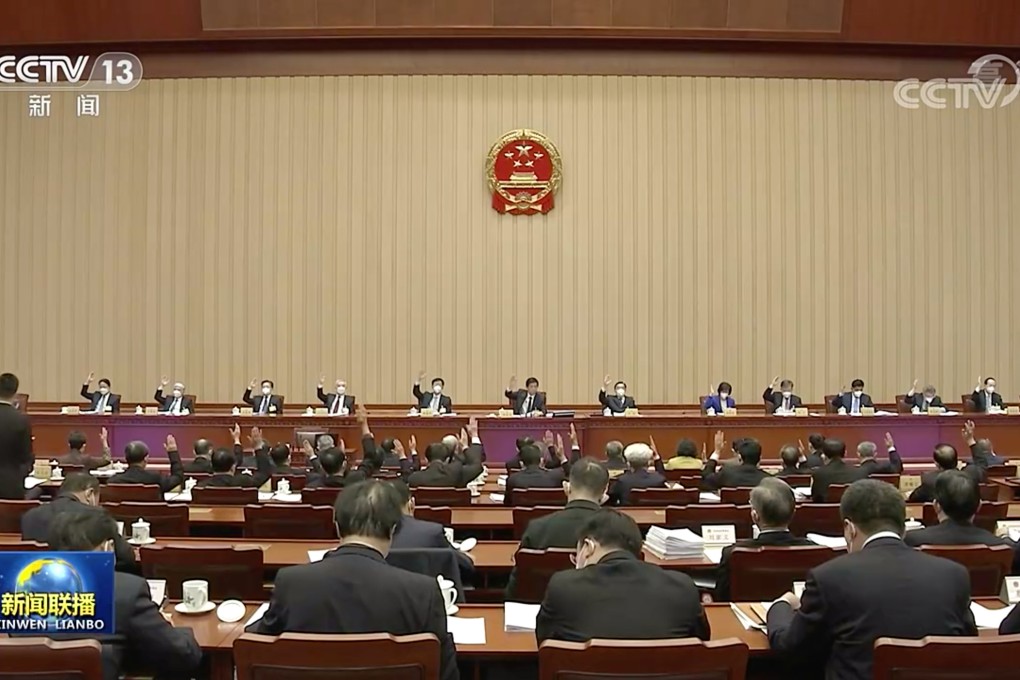Advertisement
Opinion | In safeguarding national security, NPC’s interpretation on foreign lawyers is minimalist and reasonable
- A blanket ban on foreign lawyers, as some feared, has not happened. Instead, the interpretation simply guards against interference by malignant actors, and only in cases involving national security
Reading Time:3 minutes
Why you can trust SCMP
8

When Chief Executive John Lee Ka-chiu said he would invite the National People’s Congress (NPC) Standing Committee to interpret the national security law for Hong Kong in relation to the admission of overseas lawyers in national security cases, there was a gnashing of teeth in some quarters.
Advertisement
This arose after the courts, without considering national security implications, allowed media magnate Jimmy Lai Chee-ying to instruct Britain-based barrister Timothy Owen KC to represent him in his forthcoming trial on charges of collusion with foreign forces and publishing seditious content.
Although nobody disputes that the national security law enables the NPC Standing Committee to interpret its provisions, there were concerns that a long-standing mechanism that enables eminent lawyers from elsewhere (invariably Britain) to conduct cases in the city on an ad hoc basis was in jeopardy.
The Legal Practitioners Ordinance enables the Court of First Instance to admit an overseas lawyer to handle a particular case if this is in the public interest, where the individual has an expertise unavailable locally or where there is no other suitable lawyer.
In national security cases, however, there can be problems if an overseas lawyer is instructed, and these cannot be disregarded. As the national security law stipulates, Hong Kong has a constitutional duty to “safeguard national security” and it must “perform the duty accordingly”.
Advertisement
The national security law provides for the police officers, prosecutors and judges involved in national security cases to be vetted, and they must also undertake to uphold the Basic Law and bear true allegiance to Hong Kong. These procedural safeguards, however, do not extend to private-sector lawyers, who are nonetheless entrusted with the same confidential material.

Advertisement
